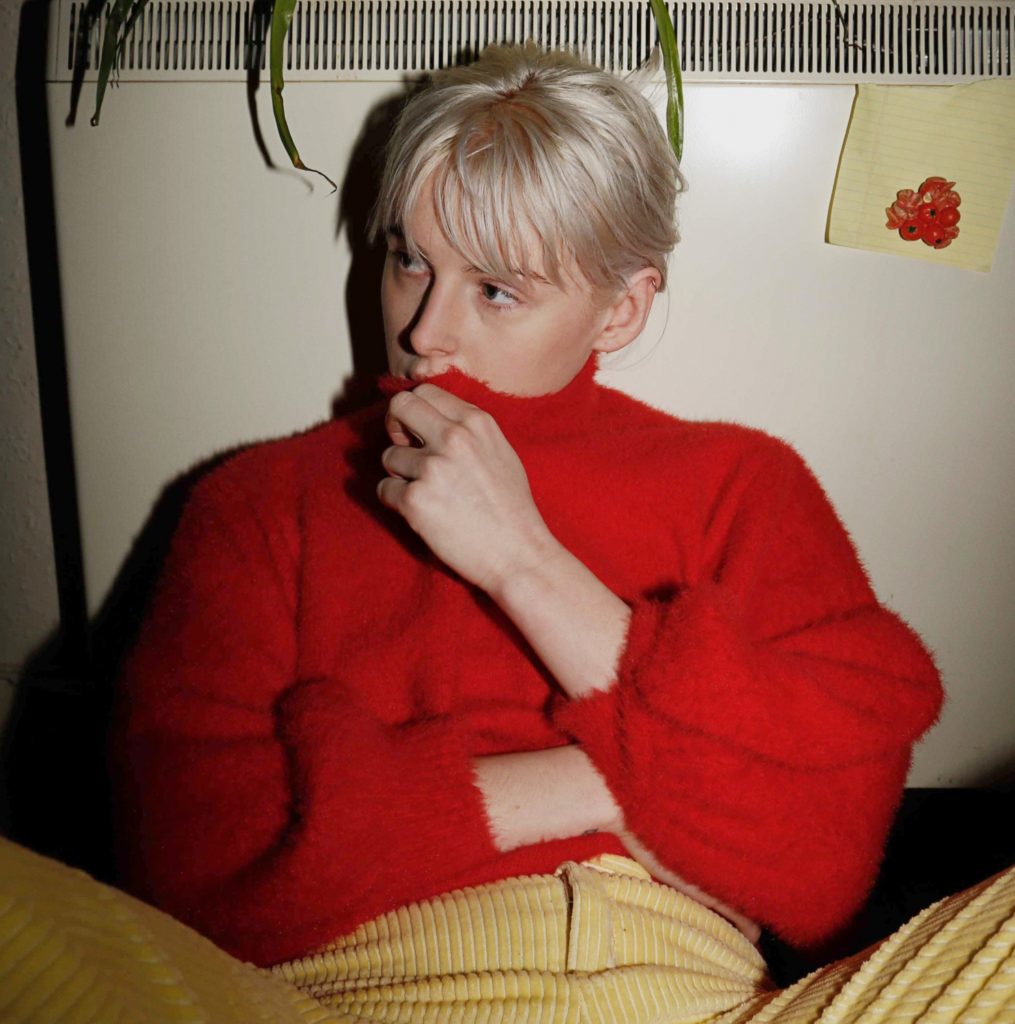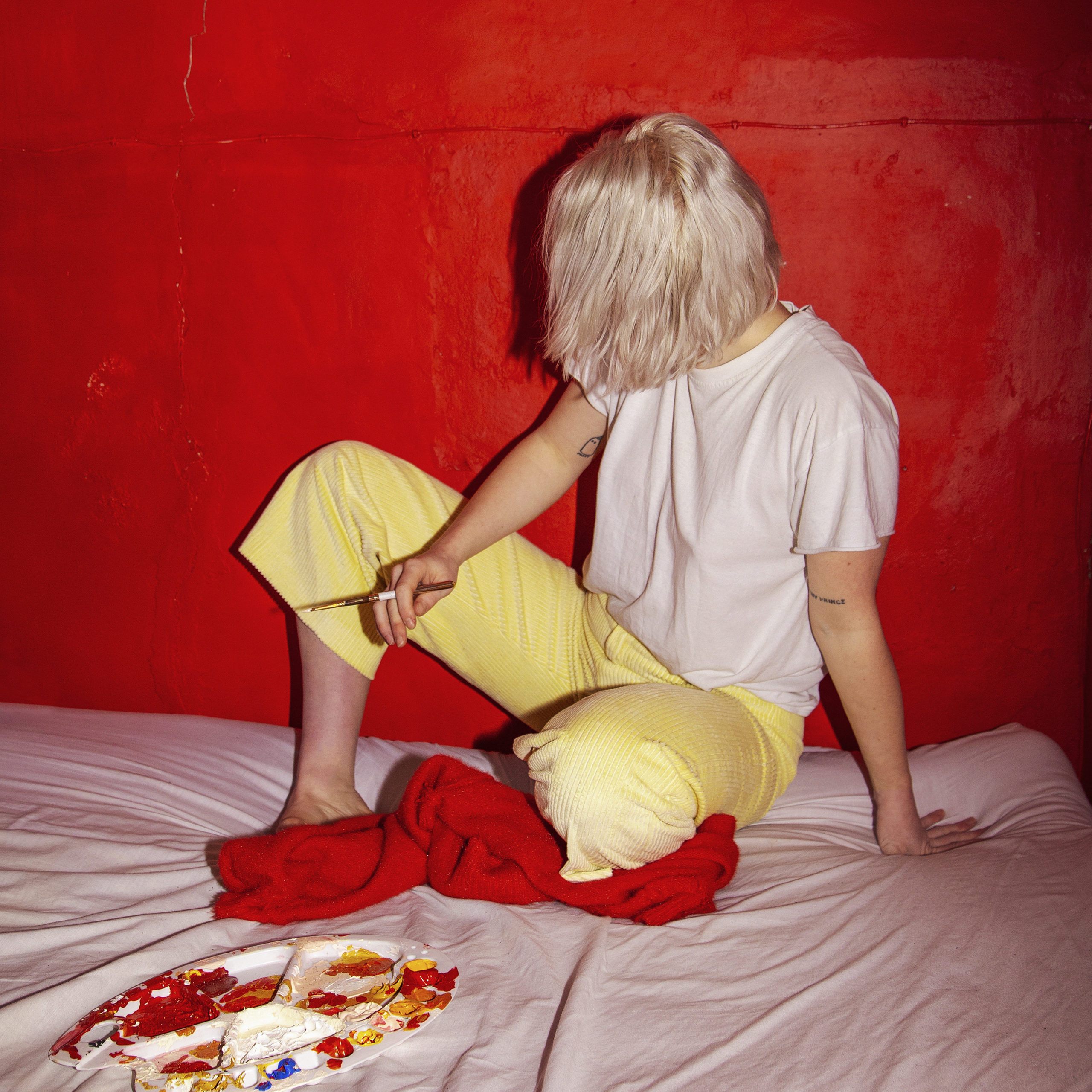Foto © Nicole Loucaides
Bereits mit ihrem in Eigenregie veröffentlichten Debüt On Hold gelang es Fenne Lily im Jahr 2018 ihren leidenschaftlichen Texten eine authentische und harmonische Form zu geben. Nun legt die in Bristol ansässige Künstlerin mit ihrem eindrucksvollen Zweitwerk Breach nach – und das Resultat kann sich wirklich sehen lassen. Die Themen haben sich seit dem jugendlich inspirierten Erstling klar gewandelt, lässt die Sängerin verlauten. Sie reflektieren nun weniger die zwischenmenschlichen Ebenen, die das Debüt noch geprägt haben, sondern gehen vielmehr auf eine ganz persönliche Reise.
Auf der musikalischen Ebene gewohnt verführerisch und verzaubernd, ist Breach das Ergebnis einer selbst auferlegten Isolation von der lärmenden Welt, der drängenden Auseinandersetzung mit Themen der Selbstfindung, depressiven Ängsten, Zweifeln, der Natur des Alleinseins und nicht zuletzt der Frage nach dem Durchbruch aus dem Dunkeln ins Licht. Dass die erst 23-jährige Musikerin diese existenzielle ‚tour de force‘ mit einer klanglichen Leichtigkeit vorträgt, ist dann nicht einfach nur faszinierend, sondern zeugt davon, wie gereift die kreative Kraft der britischen Künstlerin sich jetzt schon präsentiert. All dem sind wir in unserem Interview auf die Spur gegangen – und konnten Fenne Lily neben allerlei Einsichten in ihr Werk auch noch eine wesentliche Buchempfehlung abringen. Was braucht es da noch mehr?
Thanks a lot for taking your time, Fenne – and congratulations on the upcoming release of your record! How do you feel right now? How are things going for you in Bristol?
It’s a weird feeling, because normally, I mean I have only released one other album, but before I released that album I was playing shows, and it made it feel more real. Like I released a tangible thing. Right now, because of the situation in the world, it’s more of an abstract thing that’s happening to me. I’m excited to have the next chapter of my life, no question. Yet, with this album I really wanted to write an album that I would enjoy playing live with my band. So that kind of excitement has been taken away, but I do think the albums that I have been listening in quarantine, besides all upheavals, have touched me in different means, because I sat with them for longer and I have absorbed them more. Maybe it’s a good time to release music. Because people will have more time and patience to listen to other people’s stuff.
You actually wrote Breach while voluntarily isolating yourself. How does it feel to release the album at this point in time, now that people worldwide have more or less made the drastic measures of involuntary quarantine?
I came off a tour after I released the first album and I felt that I didn’t want to go home and I also didn’t want to be around as many people as I’ve been around on tour, because touring is constantly meeting and moving away from people and I found that process kind of hectic. So I wanted to go away for a while and write about experiences and thoughts I had collected while I was travelling around. I’ve got a place in Berlin and I stayed for a month. I really wanted to discover whether I would be a good person on my own, because up to that point I had been living with other people, I had been constantly in and out of serious and not serious relationships, and I was feeling like that interpersonal connection maybe validated me more than it should. So to be by myself was a really important part of moving away from relying on people. Realising that I could rely on myself, that was cool. Also I get very easily distracted. If the sun comes out, or if I found a book that’s good, or there’s something I want to got to, I would not work. And I wanted to see whether I could improve my work ethic. Isolation is a weird one, because it makes you think more about how you live your life. It makes you worry about a lot of things. But weirdly, when I include music into that isolation, music becomes the thing that I don’t have to worry about. All of my inner turmoil can be processed in a way that makes it feel healthy. I don’t really know what I would be doing with all the shit in my head if I didn’t make music.

There are quite some tunes that tackle issues of being or feeling alone. Can you describe the feeling that initiated these songs? What different kinds of loneliness do you describe?
During writing this album I realised that I have always felt lonely, which is too vague a word for it. Even when I was a kid I would feel overwhelmed by exciting things like Christmas and birthdays. I cried every birthday when I was a kid. And then things that should make me feel lonely like being by myself all day in a field with a pencil and a paper would make me feel okay. I’m good at socialising and I need that, but also I’ve always felt a little bit empty I guess. I wanted to address that feeling that I’ve always had, because heartbreak or depression or elation are feelings that passed, and I wanted to address the feelings that for me have never passed. But also speak about them in a way that makes me feel okay about feeling those things. Certainly for ‚Solipsism‘, the chorus is „I’m empty at one and twenty“, but it comes across as almost like flipping and maybe more light-hearted than the lyrics would suggest it should sound. Because I have become kind of okay with the low points. And I think, I mean for the first album, people would describe it as a heartbreak album, a sad album. But for me it wasn’t, because I felt all those things at the time and for this album I wanted to move away from speaking about sad things in a sad way and move more into accepting that the way I feel is the way I feel, everything I feel is important. It’s kind of about independence, but also about co-dependance in a way.
What would you say this album is essentially about? Which issues did you try to work out on Breach?
When I wrote ‚Breach‘, I was feeling almost like I was living two different lives. I spent a lot of time touring and that was one of my lives, and then I would come home and feel completely different. Learning to let go off people and places was something that I wanted to address. Finding comfort in things that are simple and normal things. Like doing laundry or reading a book. And also, I think one of the most important things that I think this album is about is, recognising the positive aspects of being in love or being infatuated with something or someone and also recognising the benefits of being able to let it go while not holding on to any resentments. Seeing everything as a moving part in a larger puzzle.

How do the themes differ if you compare it to ‚On Hold‘?
I think the topics have naturally moved, because I’ve grown up. I wrote the first album when I was between fifteen and eighteen. That was a pretty hormonal, stressful, weird time, where I figured out what I liked, what I wanted to be and what I wanted to do. This album is different in the sense that I am more self-assured, but also less confident in things that I used to be confident in. I guess it’s different purely because both albums are collections of stories and the stories are different because I’ve lived different lives. But also, it’s less about people hurting me and more about how hurt myself and also how I fix myself. It’s different in that way too.
There is quite a strong concept behind the title of your record. Can you outline the double meaning behind ‚Breach‘?
The first meaning refers to me being breech-birthed, so I was born upside down. And I was thinking a lot about how I came into the world right in a few of these songs. Especially ‚Someone Else’s Trees‘, that’s a song about how I almost died when I was a kid. I just stopped breathing, I don’t really remember it, but I remember my mum’s reaction to it. So that’s something I wanted to address and also „breach“ can be a word to describe like breaking through a wall or a barrier and I feel like between the beginning and the end of the album I achieved a lot of personal things. There is a lot of growth implied in the word and I feel like it fits.
Why did you feel the concept was a fitting theme for your album?
For this album, the label was asking me what I was going to name the album. I find it so hard to put a name and a face to what I make. I don’t want it to be misleading and I don’t want to characterise music itself and make people explore it in a different way. So at one point I stopped thinking about it and just let a word come to me and once I did not look back at my decision.

Elsewhere, you are blending two words into one, on the song Alapathy. Can you relate the story behind that song? What does it mean to you?
I had a point where I couldn’t sleep for a few days, my brain was working so fast and I just couldn’t focus on anything properly. And there’s a panic that comes with that kind of thinking, where you wonder whether you will ever stop thinking. Sometimes when that has happened in the past I’ve thought maybe Western medicine like anti-depressants will give a fix. This part of my brain is obviously doing the wrong thing. But at the same time I don’t want to turn off any part of my brain, because I think, as much as it helps, lots and lots of people get through depressive episodes or whatever, for me I think I need the high points and the low points to function and to work through my stuff. So ‚Alapathy‘ is kind of a mixture of ‚apathy‘ which I was feeling regarding my mental health, feeling a little bit helpless, and ‚allopathic‘, which is a form of medicine that treats the symptom or the cause of something. And I really think that treating the cause of something is the way forward. To me that involved working through it and talking about it in music and sitting with my feelings, and speaking to friends about it. And not trying to solve that problem with medicine.

How do you think music, or art in general, can treat issues more sustainable than medicine?
I think it’s hard to make a generalisation, because everyone’s mental health is a different story. For me, music, art, books, conversations definitely help me through. I have not experienced extreme depression in the sense that my lowest points are definitely less intense than other people’s. I feel lucky that I don’t really have to worry that it’s affecting my life that much. But I also have music as a way to translate it into something positive. A lot of people don’t have that. So while I think that it’s extremely important and cathartic to absorb art, I also understand that for deeper, more serious sadness or difficulties, it’s not going to be your first port of call.
On ‚Berlin‘ you sing: „it’s not hard to be alone anymore / though you’re waking to a day you ignore“. What is that like? Is it acceptance of being alone, or feeling more comfortable in your own self?
I wrote it when I was still in Berlin and feeling completely fine during the day, also feeling a little bit numb. Because you are energised by other people’s energy and I didn’t have that. So, as much as ‚Berlin‘ is about becoming comfortable with my own company and not relying on other people, it’s also an admission that that situation can change at any moment. It’s not like you reach a point where you’re suddenly a happier person and you can be by yourself. It doesn’t work like that. It’s a process and there’s definitely times now where I can’t stand being alone and that will happen all the time during my life. It’s good to know there was a point where I couldn’t do it and now I’ve reached a point where I can do it if I want to.
You were reading Just Kids by Patti Smith around the time you were writing Berlin, is that right? How does that play into the song? What other kind of writers / artists do you look up to?
Actually ‚Just Kids‘ was the only English book in the apartment that I rented. I read it three times and I think less of the theme, but the way that Patti Smith writes, started a process with me writing a little bit more about usual everyday stuff. She’s got a poetry in the way that she thinks that comes through her writing, even if she is not writing about something particularly stimulating. She can inject meaning into anything because of the words that she uses. And I wanted to be as conscious as her when I was writing lyrics. I’m really glad I found that book.
What kind of feeling or atmosphere would you wish to leave behind, for everyone who listens to ‚Breach‘?
I hope that people end the listening experience feeling positive but they begin it feeling sad (laughs). But also, I’m not having any intention how I want people to feel. I would just like people to feel something. But then I don’t mind what.










